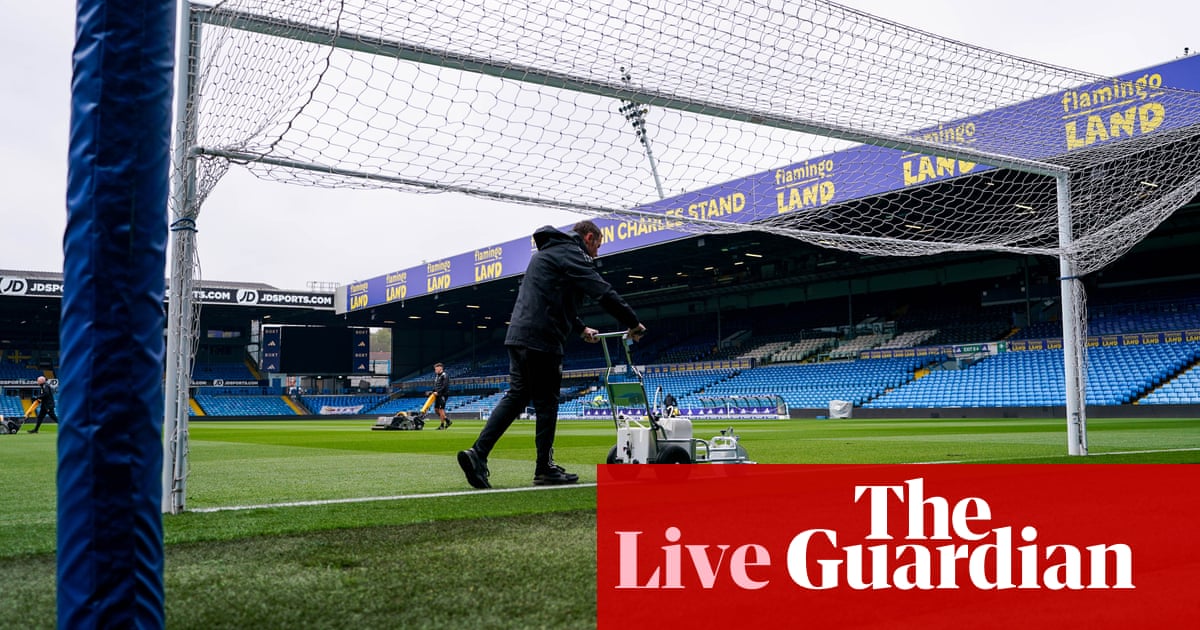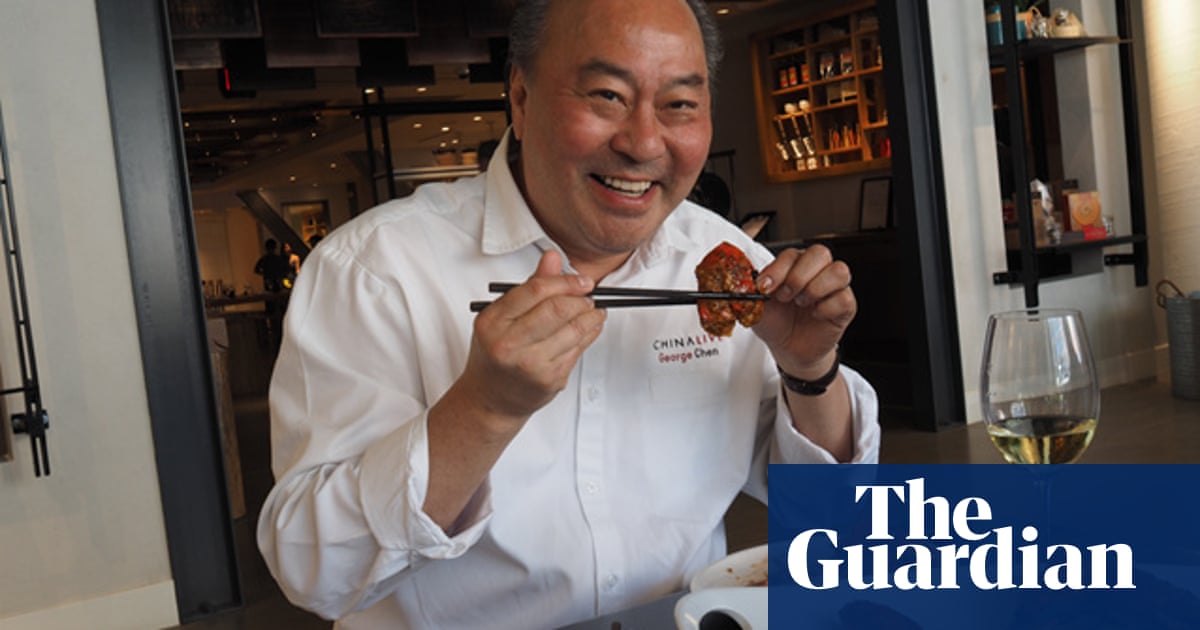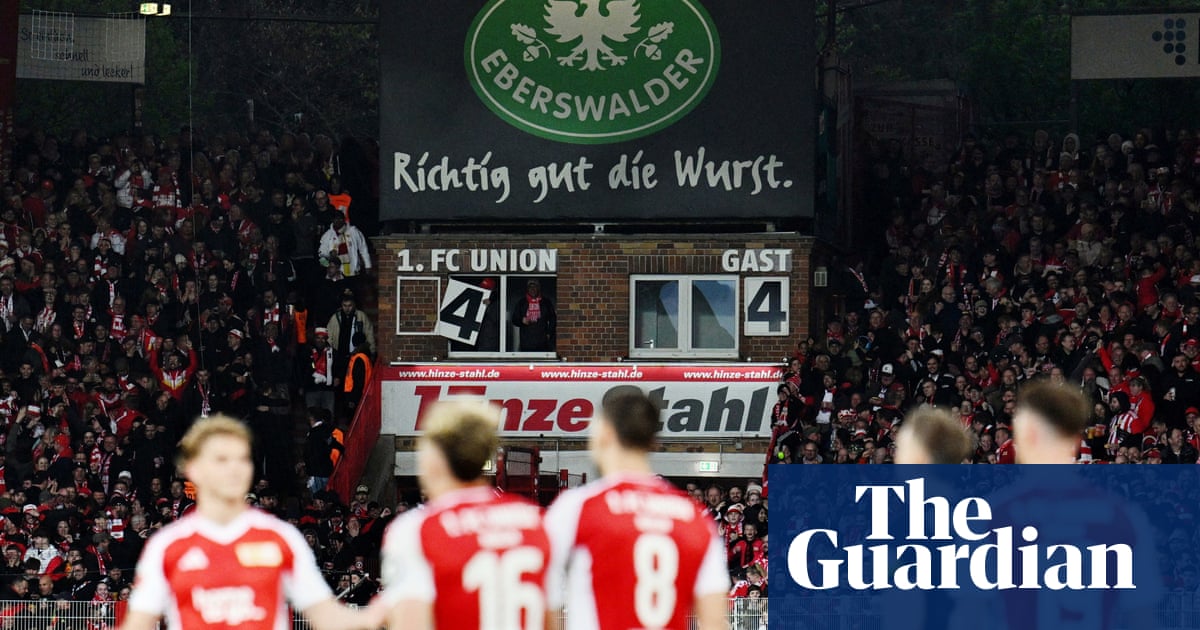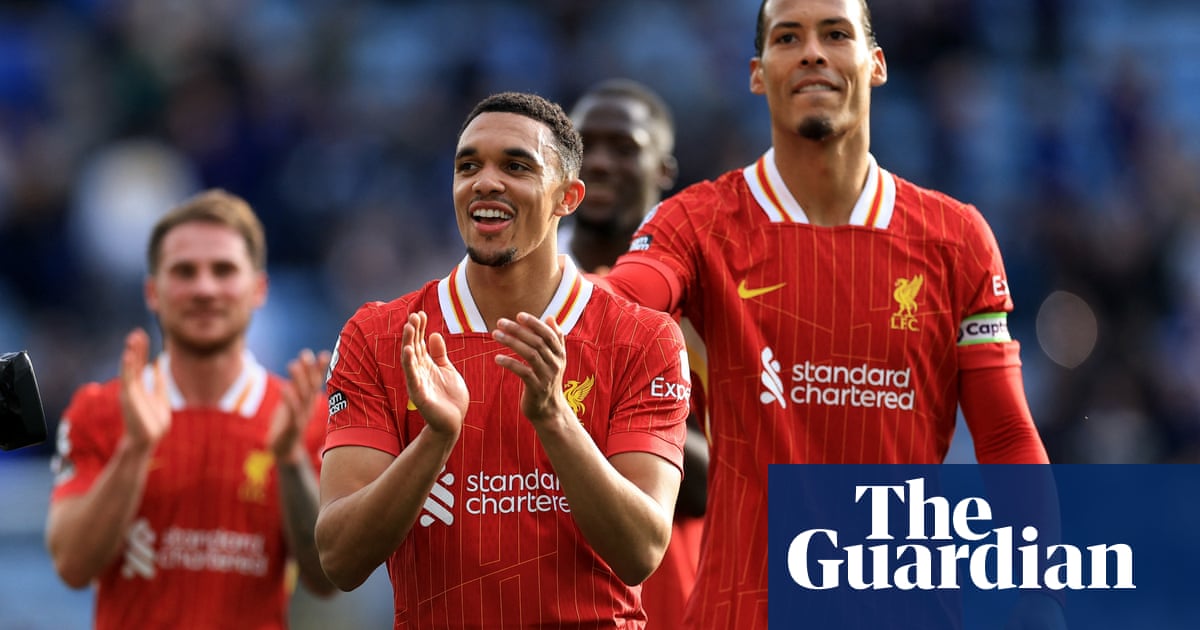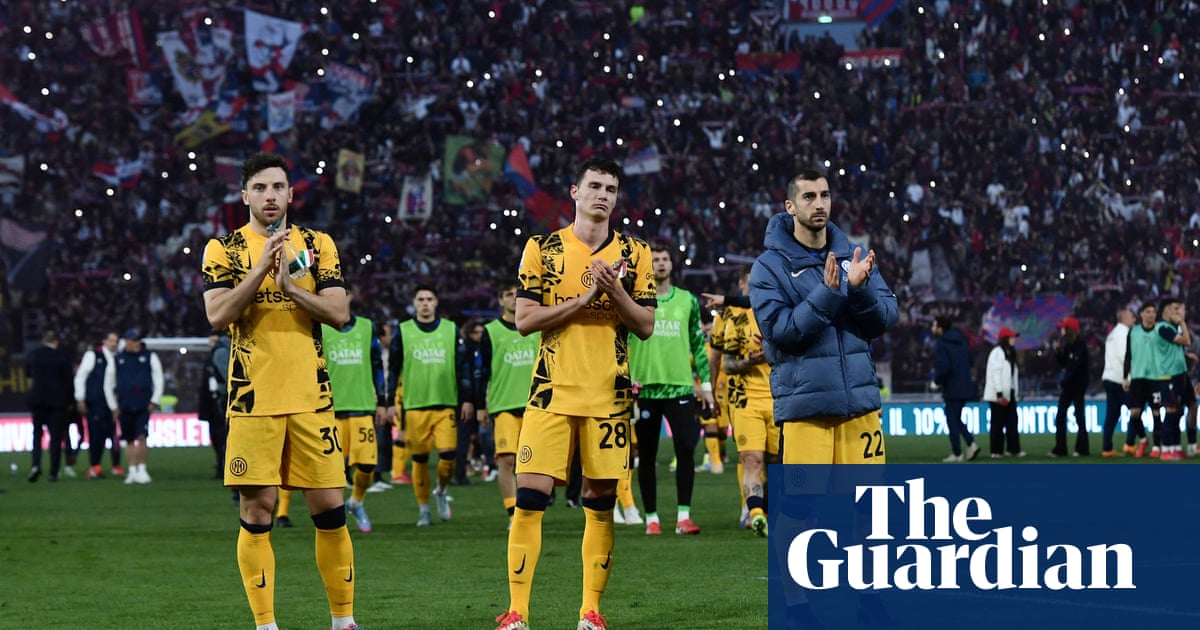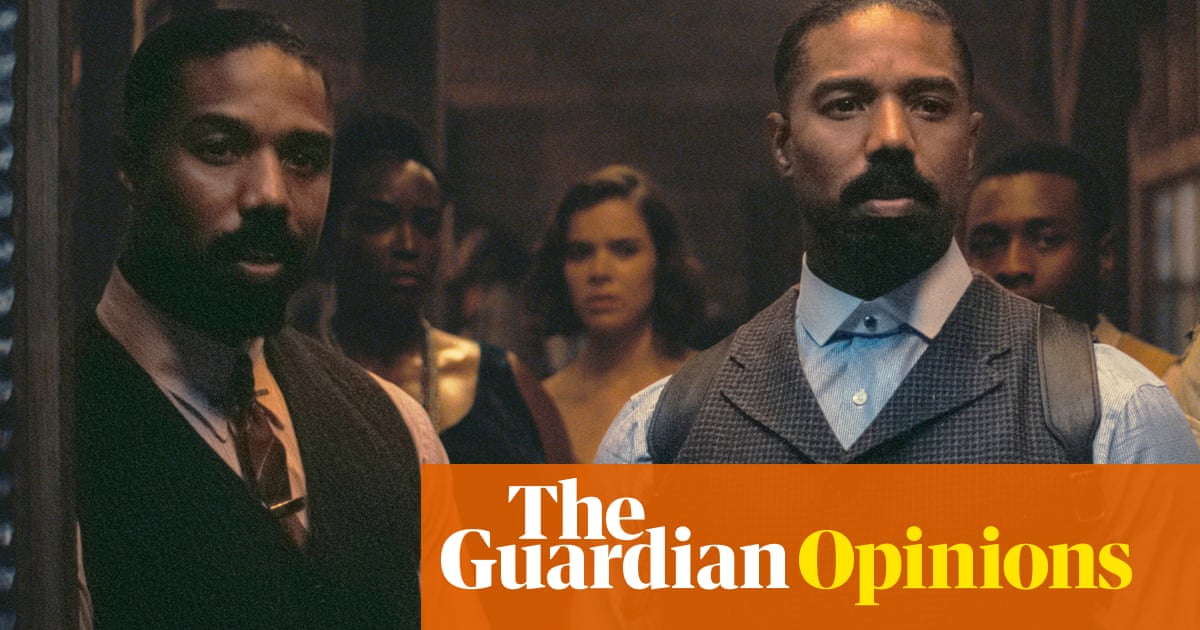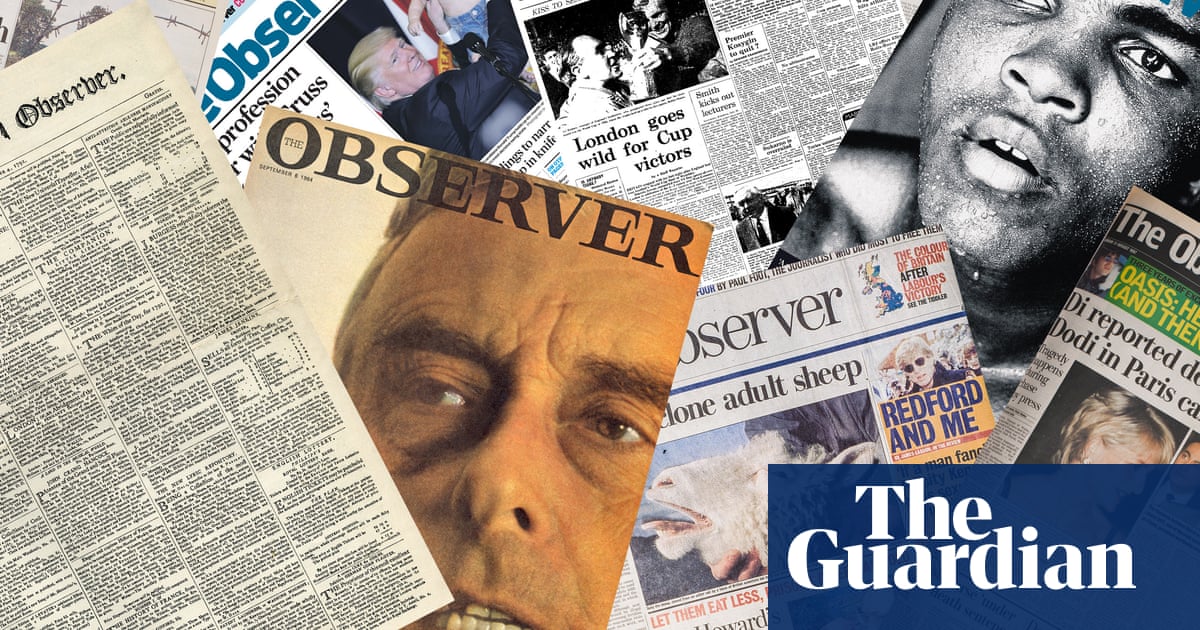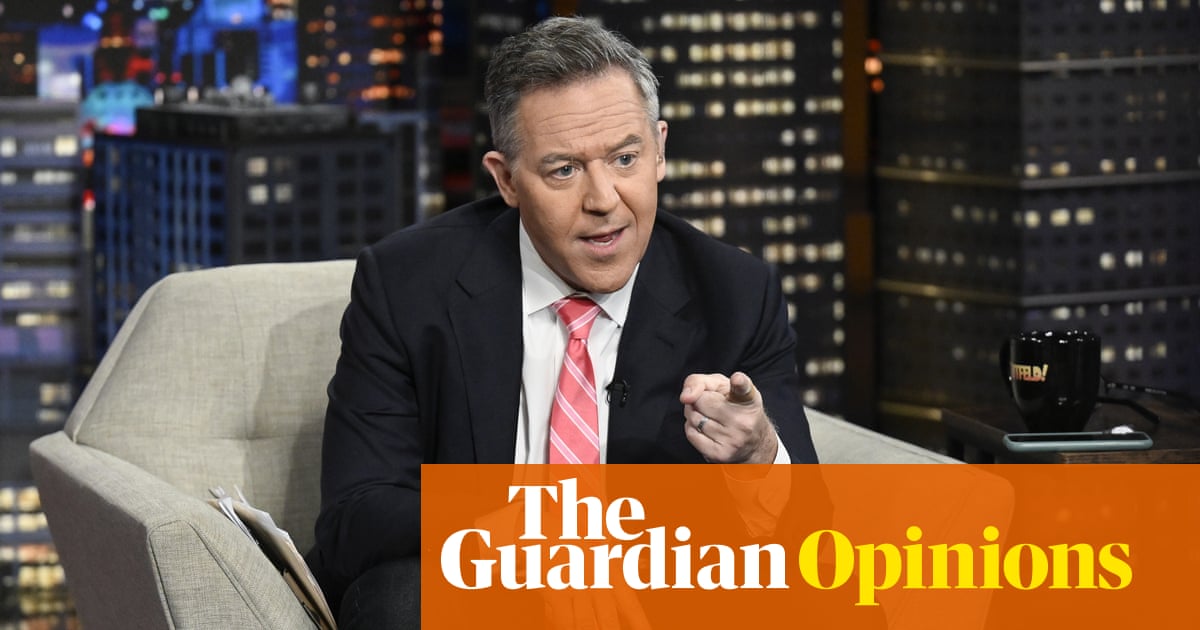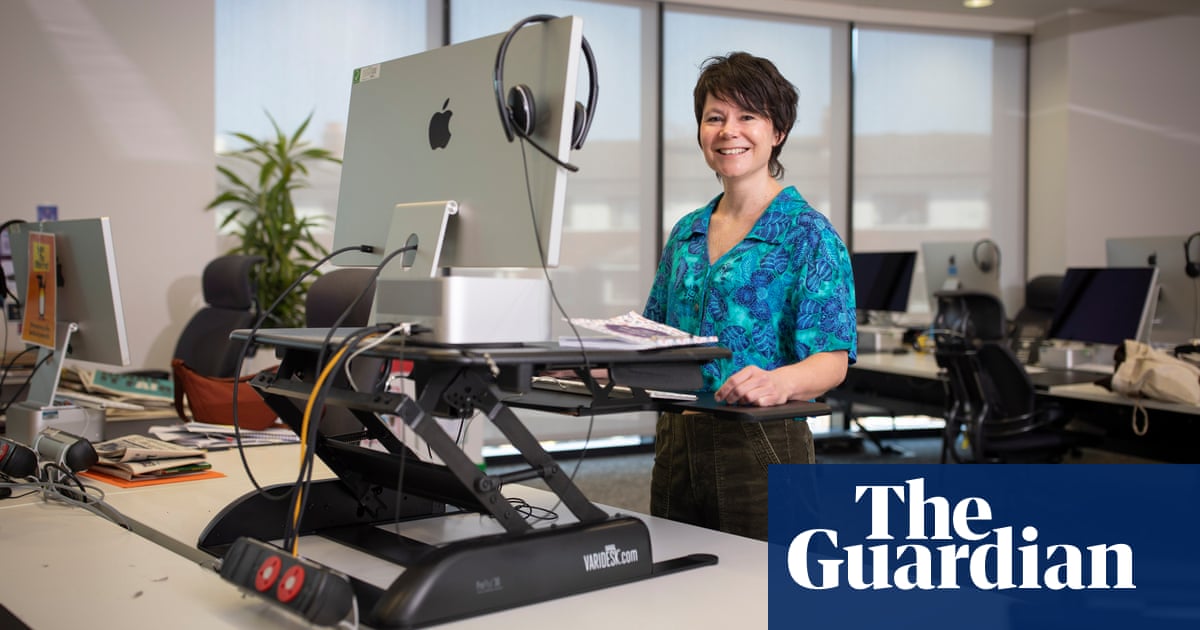Adrien Brody puts down his phone. “I’m heartbroken,” he says. The latest of many friends in Los Angeles has just lost their home to the city wildfires. The actor, 51, hasn’t had a place in LA for some years, he says. Still. “It’s horrible. Unfathomable.” The mood is sombre, but he is also at work. He sits in the corner of a London hotel room, legs crossed in a chic black coat. A publicist hovers in the en-suite bathroom.
Brody is here to spread word about The Brutalist, the epic drama in which his star performance is likely to secure the best actor Oscar. It would be his second. He remains the youngest man to ever win the prize, having done so in 2003 for Roman Polanski’s The Pianist. An awards campaign is now under way, a process not much less fraught than a run for political office.
The comparison does not delight him. Shortly, when he speaks of his childhood in “melting pot” Queens, New York, I mention that his family home in Woodhaven is in walking distance from where Donald Trump grew up.
“I can only speak to my own circumstances,” he says. “I grew up the son of very empathetic people.” The question was a throwaway thought about different lives starting in nearby places. Brody isn’t feeling it. “I don’t want to weigh in on politics.” And the parallel isn’t interesting, he says. “I don’t see how it pertains to me.”
On screen, you think of Brody turned to one side, with that broken-nosed profile. This is also how he tends to answer questions, looking over there.
The Brutalist is not a throwaway movie. Brody plays Hungarian-Jewish architect László Tóth, first seen in 1945 leaving Europe for America. Like Wladyslaw Szpilman, the protagonist of The Pianist, Tóth has survived a concentration camp. Over the course of three and a half hours, we follow him into the coming decades, mapping the pursuit of his visions, and his uncertain place in the US. Co-stars include Felicity Jones and Guy Pearce, but the film belongs to Brody. His work is stunning; the man he brings to life is a giant talent, yet flawed and complex.
Yes, he says, nodding at complex. “Because human beings are complex. And I love to find roles that are not crafted so you like the character, but where you have to earn an understanding.”
The movie also lets us join the dots between history and what is still acutely of the moment. American attitudes to immigration loom large. Brody agrees. “There is still tremendous relevance to a story of people fleeing oppression and yearning for a better life. It is something familiar from my own ancestral journey.”
He gives a deep sigh. “Unfortunately, we see things we should have learned from our past that we haven’t learned.” He checks himself discreetly. “But that’s complex too. I can only speak to how people often don’t feel treated as equals.”
Like László Tóth, Brody is rooted in Jewish Europe. His father’s ancestors were Polish Jews. His mother and grandparents – one Jewish, one Catholic – left Hungary for America after the failed 1956 anti-Soviet uprising. Brody channelled his grandfather’s accent in The Brutalist, a film bound up with Jewishness that also touches on Israel. “The film definitely speaks to antisemitism,” he says.

He has talked in many interviews of the weight of his own connection to the material. Family members died in concentration camps. I ask if he ever experienced antisemitism directly? Has he been to Israel? “I don’t want to delve too much into it personally, if you don’t mind.” There is a long pause. Eventually, he says he thinks the film is less about antisemitism than being othered in general.
Still, it is also about being Jewish. At the Golden Globes earlier this month, comic Nikki Glaser’s opening monologue saluted “two time Holocaust survivor Adrien Brody”. (The camera cut to him, laughing.) He later won the prize for best dramatic actor. His parents Elliot Brody and Sylvia Plachy, an acclaimed photographer, joined him, their only child, at the ceremony. For all the narcissism of Hollywood prize-givings, the moment was touching. “I’ve never seen that level of joy on their faces before,” Brody says.
It borders on cliche to say a performance is so good you can’t imagine another actor in the role. Brody’s vividly realised László Tóth owes much to his professional excellence, but also to his personal aura of frantic drive and inner sadness. When director Brady Corbet first wanted to make the film in 2019, he met up with Brody, who fell in love with the material. But Corbet went on to cast Joel Edgerton instead.
Brody meets the subject head-on. “Certain actors are more viable at different times in their career – more of a name – and that affects one’s ability to access the very few really meaningful roles you might be right for. And this was particularly disappointing because I knew it would be deeply meaningful work. And that I probably am, in fact, the right person. So in my opinion, it was everyone’s loss!” Now he looks straight at me with that brilliant, feral grin. Then he bursts out laughing.
Covid derailed the planned shoot with Edgerton in 2021. Brody was later cast after all. The film was dogged by scheduling conflicts, but Corbet explains the change differently. “Joel is a friend. And at a certain point, he and I spoke frankly, and agreed the role should be played by someone of the correct cultural heritage. And I’d never got Adrien out of my head.”
Brody first acted professionally at 13 in an off-Broadway play, after his mother enrolled him in acting classes. His film debut came two years later in the anthology New York Stories. (His section was directed by Francis Ford Coppola.) Through the 90s, when Brody was in his 20s, major directors were drawn to his strange mix of cocksure and vulnerable. Spike Lee and Terrence Malick gave him leading roles. Ken Loach cast him as a charismatic union leader in his LA-set Bread and Roses. Loach’s producer Rebecca O’Brien remembers Brody auditioning, rivalled by Keanu Reeves and Friends star David Schwimmer. “There was always something interior about Adrien that left me feeling I never quite got to know him – but he brought the film a wonderful energy.”

Among film-makers, Brody is talked about as a model colleague: gifted but diligent, and setting the tone. When Polanski cast him in The Pianist, he responded with long ascetic preparation and punishing weight loss. His performance deserved the acclaim.
Two decades on, the film business has evolved. The question of Polanski, who fled the US in 1978 after admitting the statutory rape of a 13-year-old girl, is one Brody seems to expect without wanting to address. Would he work with him again? “Too complex to answer in this moment,” he says. “Really is.”
Then there was Oscar night, March 2003. An American-led coalition had invaded Iraq three days earlier. Accepting his award, Brody closed his speech with the words: “Whomever you believe in, if it’s God or Allah, may He watch over you.” It felt measured. “The timing was a lot to process,” he says now.
Life is tricky. It is hard to talk about a second Oscar without recalling his first, just as you can’t say much about The Brutalist without speaking, at the least, of Jewishness. Brody can also seem wincingly sensitive, and unsparingly focused. Another theme of the film is legacy. I ask what he wants to leave behind. “My work.”
Yet his post-Oscar career was not what he expected. His profile remained high, but he found quality projects rare, and blockbusters an odd match. (Peter Jackson’s King Kong is still his biggest box-office hit.) He has talked since about battling depression. In 2007, he bought Stone Barn Castle, a dilapidated historic building in upstate New York, which he spent seven years obsessively renovating. “I spent a great deal of my energy and resources on that. I found it very painful. But also quite rewarding.”
Brody was still a functioning movie star into the 2010s. He had also reached the point of being known more for his existing fame than for any new films. Few of those made him feel good. “An actor’s reality is that they can only interpret the work they’re given an opportunity to do. You’re reliant on others.” Early in his career, he had drawn comparisons to Robert De Niro. But De Niro had Martin Scorsese to create his career-defining roles. The closest thing for Brody was Wes Anderson, who repeatedly hired him. Yet an actor this hungry for serious landmarks cannot live by Anderson alone.
Not long after finishing work on Stone Barn Castle, he stopped taking acting jobs. “I didn’t announce I was retiring. But I stepped back.” He painted instead, turning out Warhol-ish canvases. He loved the autonomy, he says. (He points out he also made sales.) He only changed his mind after his partner, fashion designer Georgina Chapman, persuaded him he wasn’t doing what he still really loved. He started saying yes again. There were guest spots in Peaky Blinders and Succession.
In 2021, while Edgerton was meant to be filming The Brutalist, Brody was in London shooting See How They Run, a fun, faux-Agatha Christie ensemble comedy also starring Saoirse Ronan. When I speak to the director, Tom George, he asks me to send Brody his love. He tells me an affectionate story about the actor’s perfectionism: a scene that demanded precisely the right gauge of a piece of card. “And it ended up perfect – because Adrien won’t compromise.”
And then, at last, his family history and years of gnawing professional frustration were finally allowed to inform The Brutalist. I can’t help wondering if he filmed it with the rock in the shoe – as he did on The Pianist – to achieve a certain level of discomfort? He smiles, a little. “Well, there’s always a rock in the shoe making independent films, because you have very finite time. So that brings pressure. But that pressure can then yield something special.”
In a future Brody biopic, a second Oscar would be quite the happy ending. “But a movie isn’t life,” he says. The mood in the room still has an edge. “For a long time, this was not attainable to me,” he frowns. He’s not talking about awards, he stresses. This means the chance to do things he sees as worthwhile. “Because I still have a yearning that is not fulfilled. A yearning for work that is worthy of respect.”

 3 months ago
47
3 months ago
47
